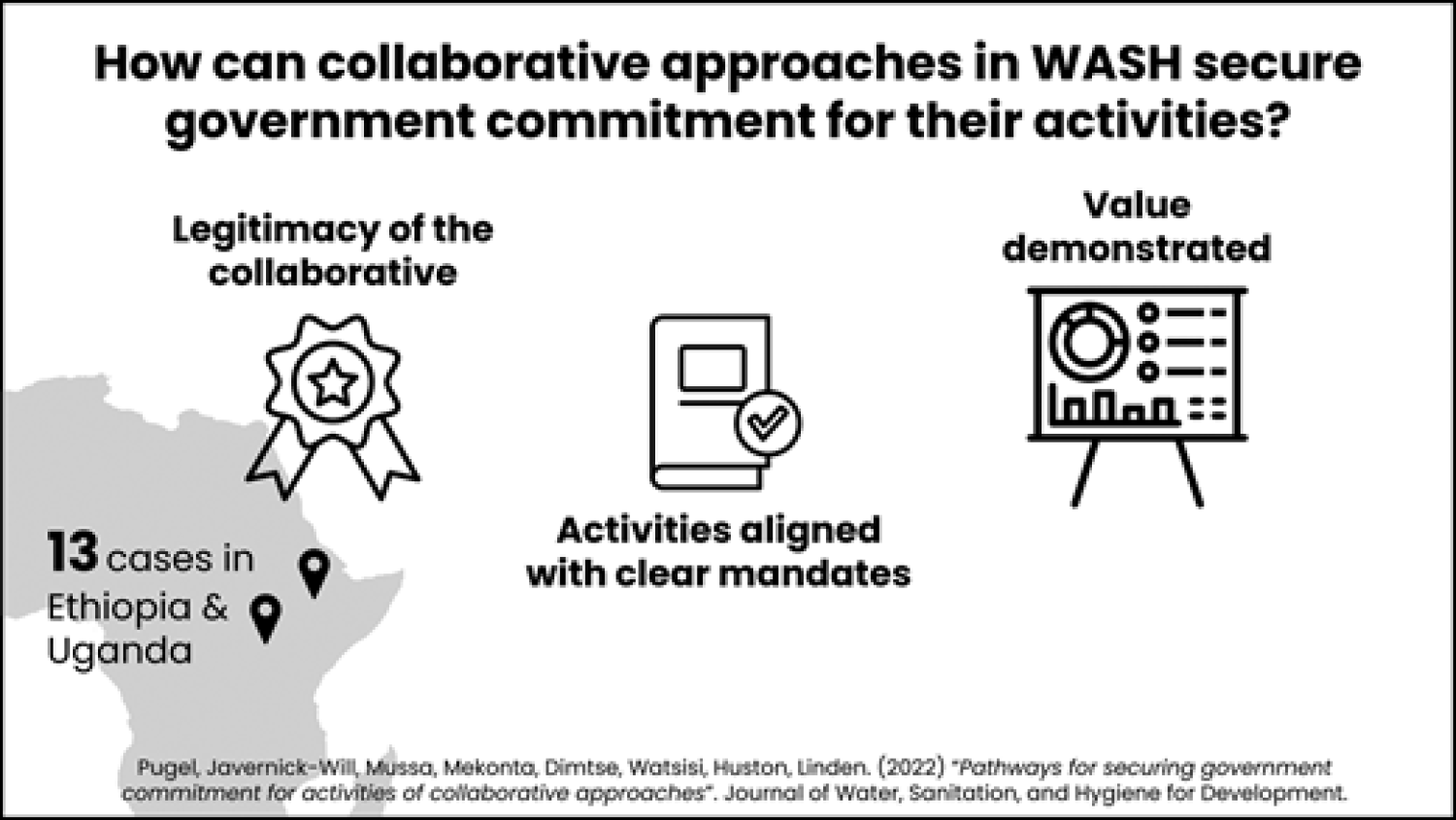Pathways for securing government commitment for activities of collaborative approaches

Decentralization in many African countries makes local governments responsible for water, sanitation, and hygiene (WASH) service provision. Yet service provision is complex and requires concerted inputs from many actors, thus local governments are increasingly collaborating with internal and external stakeholders. These ‘collaborative approaches’, which bring together diverse stakeholders to solve complex problems facing service delivery, have been found to strengthen service provision when they obtain support and commitment from local government decision makers. However, the ways to obtain this commitment remain understudied. This cross-case comparative study investigated how collaborative approaches in Ethiopia and Uganda obtained government commitment for their activities. Results draw upon experiences of 13 cases where sufficient commitment either was or was not gained. Deep case knowledge of the research team, aided by Qualitative Comparative Analysis, revealed that the collaborative must (a) be seen as legitimate and credible, (b) align activities within government mandates, and (c) demonstrate the value of the activities to decision-makers. Together this strategy provides a reliable way for collaborative approaches to secure government commitment for their activities. Notably, the results also show that commitment can be obtained even amidst turnover and political dynamics.

